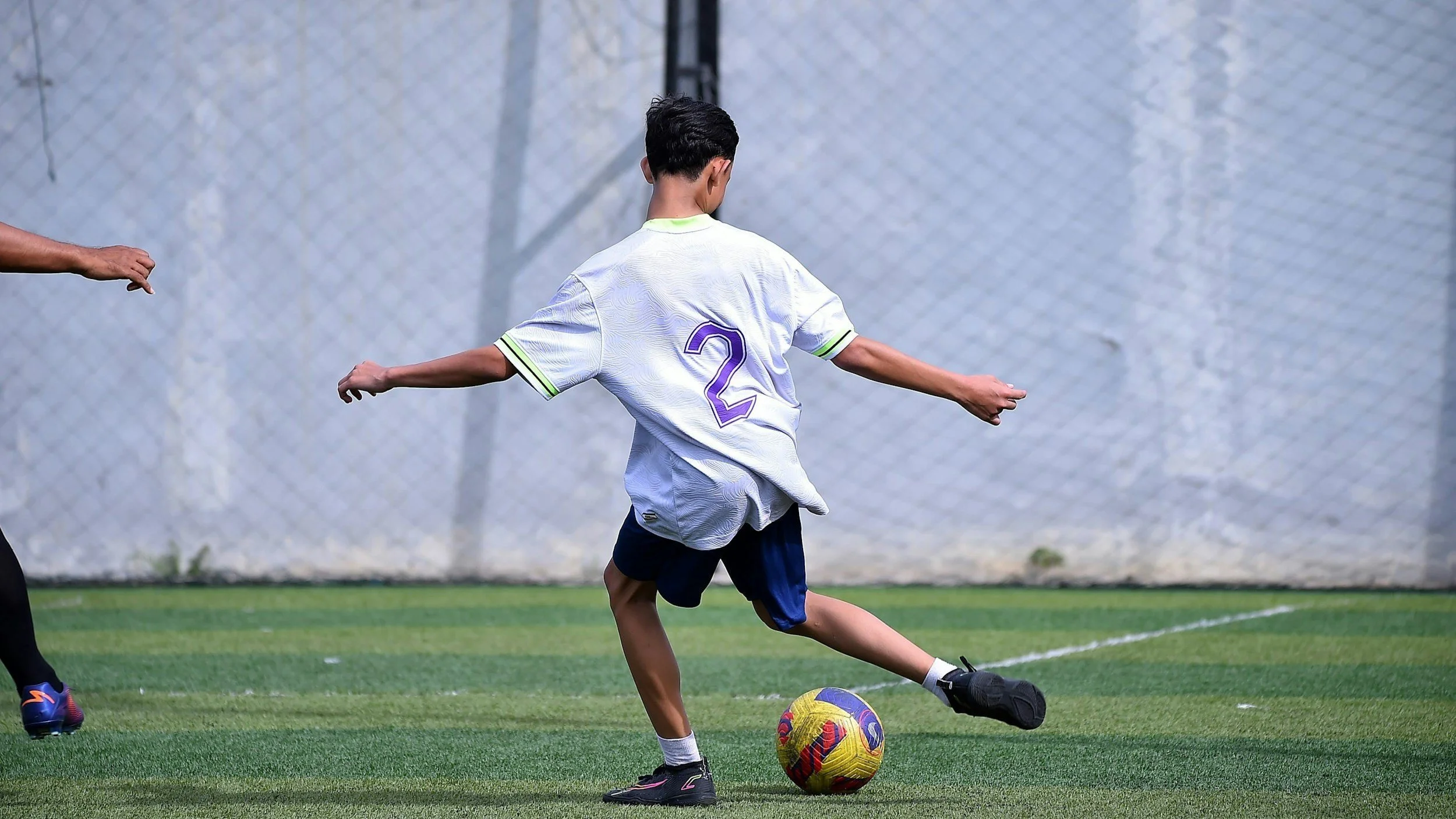How to be your kid’s biggest fan when emotions run high
Picture this – your kid is having a very loud and very public meltdown during their weekend sports game. All you feel like doing is sinking into the crowd and pretending they’re not yours. Whether we like it or not, our kids need us the most in these emotional moments.
By Lynn Jenkins, Clinical Child Psychologist and Hypnotherapist at Life Matters
If parenting was compared to sports – don’t tell me you don’t see the parallels… from the epic highs and lows to the tension and ear-bursting noise levels – what sets apart the mildly interested fan to the genuinely dedicated? What does it really mean to care for someone enough to support them no matter what? How can we stand in our kid’s corner and be their true fans even when emotions are running high?
Here's 3 simple ways you can be your kid's biggest fan:
1. Focus on their effort more than their performance
Have you ever noticed the first thing people jump to ask others after a sport’s game is ‘did you win?’. As parents we can shift our focus ever so slightly to a more supportive lens focused on effort rather than performance. This means our kid hears: I see how much you tried as opposed to I noticed how you failed. So, consider talking less about goals (whether it be soccer or at school or life in general) and say more things like ‘great effort in the game today mate.’ Mainly because to you, this one game, in this one moment in time, is a time that you probably won’t remember in ten years. BUT to your kid, it could be a very significant moment.
2. Accept your own embarrassment
When it comes to seeing your kids having a public meltdown, there’s no doubt, you might get the feeling like you want to disown them. However, the BIG thing to remember when it comes to your kid’s BIG behaviour is they need you the most in those moments. So, while it might be embarrassing for you, it’s about THEM.
If you feel embarrassed, try to take a big breath and ACCEPT your own embarrassment. Then, do your best to keep it to yourself. It’s important not to let your kids know that you are embarrassed by them because our kids look to us as to how to feel about how they ‘performed’ more than we realise. If they see we are embarrassed by them, they are likely to ‘generalise’ this to all situations in which they perform. Possible outcomes could be thoughts like: I am sub-par, stupid, not good enough, faulty, just ‘embarrassing’.
Plus, while connecting with other parents about the trials of parenting is important, your kids really need you in their corner, so try not to dis your kid about their behaviour behind their back. Be their champion, even though you might be internally cringing.
3. See them for who THEY are (hint: they are not you)
Dance mum, soccer mum, sport obsessed dad – there’s plenty a label out there to describe parents longing for their kid to grow up in their own shoes (or fill a void!). However, it’s super important to see your kids for who THEY are. They are not you 30 years ago. Your kids have their own abilities, interests, potentials and life limitations. As parents, it’s our role to foster these things. This can be difficult as our only template of being a child, is our own. So, it’s only natural to use our own self and our own experiences as the working example. But, a first necessary step is to separate our kid from ourselves, meaning, their life is different to ours.
So, when they make a choice to not go for the goal, that is their decision due to… something. The AIM is firstly, accept their decision. If that is too difficult to stop at, then, enquire as to what made them decide to make that decision. Which looks like: ‘Oh, OK, I get it’. And then, ‘What did you think was going to happen at the time?’ PAAUUSSE. And then (if you feel the need to teach)… ‘Another way to go, if you want, could be,…’
Further reading
Life Matters Disclaimer
All content in our article is published for informational purposes only. It is not intended to be a substitute for professional psychological advice and should not be relied on as personal advice. Always seek the guidance of a qualified psychologist with any questions you may have regarding your mental health.


